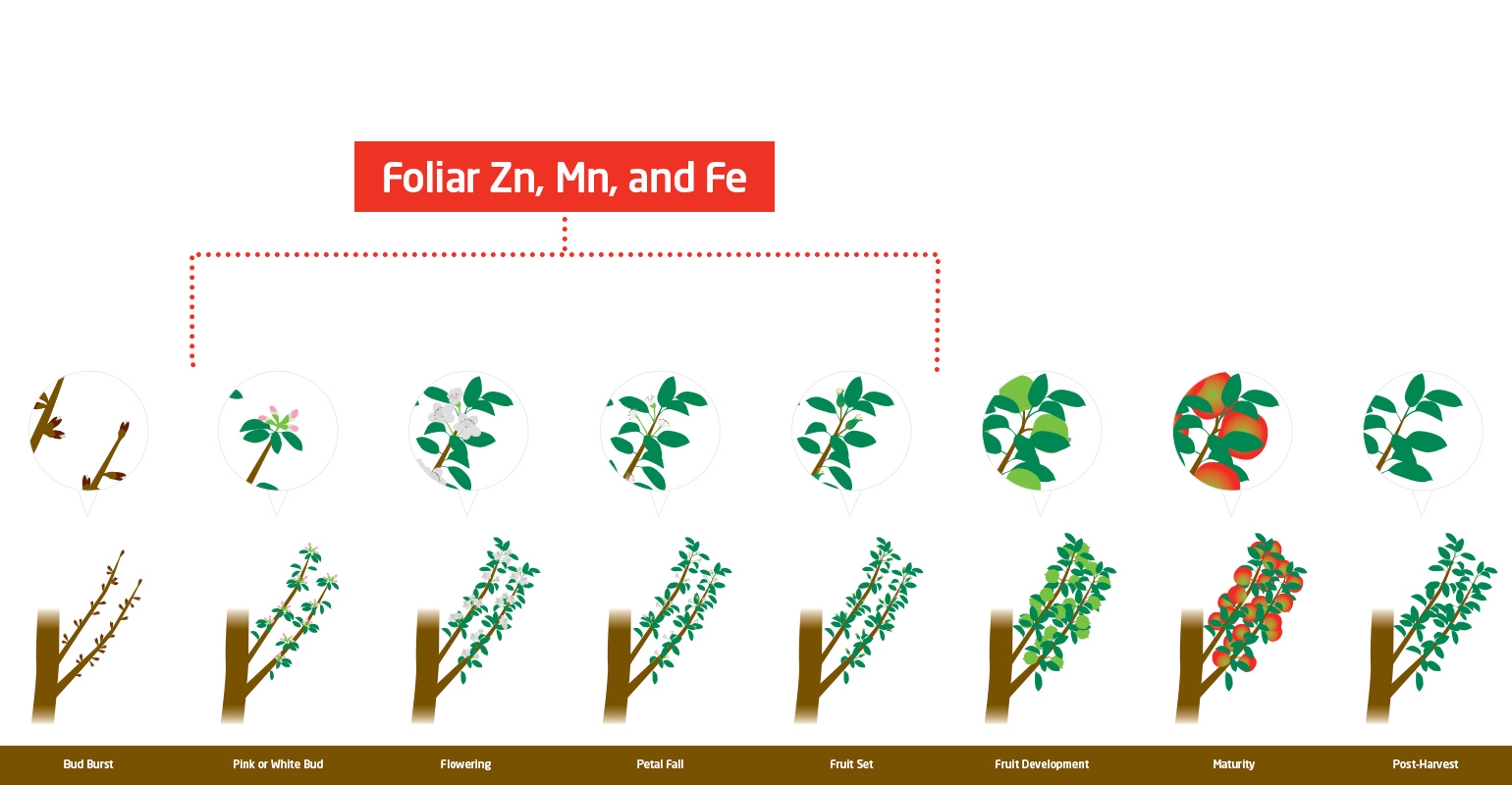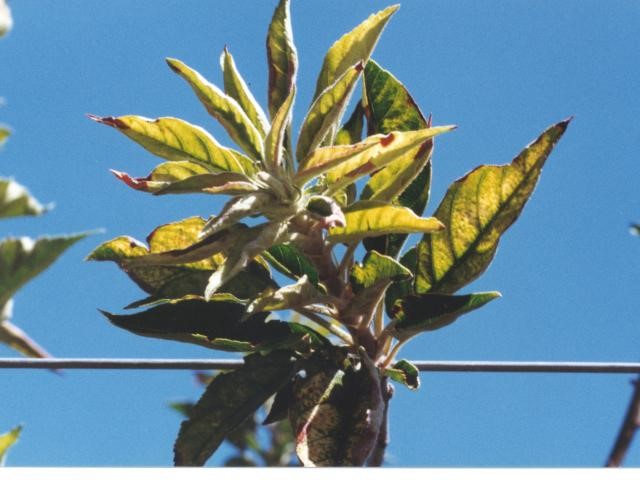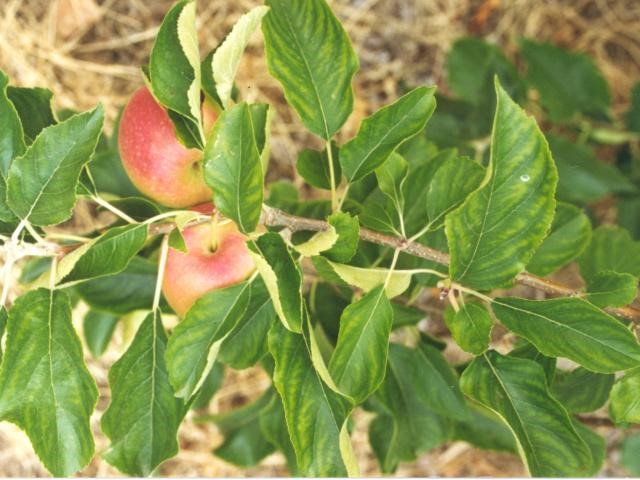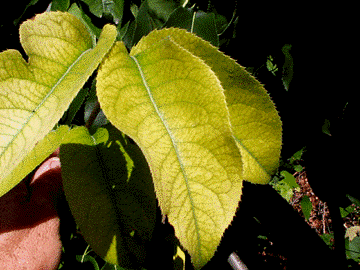Foliar Application of Zn, Mn, and Fe During Spring Leaf-Out on Pome Fruit
April 14, 2020
Agronomics / Background
During leaf expansion in Pome fruit trees, there is a relatively short window for a high demand of several micronutrients critical to chlorophyll production, photosynthesis and energy production. A foliar spray of these nutrients during leaf expansion will help kick-start apple or pear trees and facilitate early carbohydrate production that will be necessary to maximize the cell division stage of fruit growth after bloom.
Zinc (Zn) is essential to many processes such as cell division, protein synthesis, and auxin production which is critical for shoot expansion. Manganese (Mn) plays a crucial function in the photosynthetic process and cellular respiration. Iron (Fe) is essential for chlorophyll production making it a key driver for photosynthetic efficiency. Iron is also involved in respiration and nitrogen metabolism.
Conditions Leading to Zn, Mn, and Fe Deficiencies
Zinc and iron deficiencies are common in many pome fruit orchards, while manganese deficiencies are somewhat less common. For all three nutrients, deficiencies are most often associated with high soil pH levels which inhibit uptake. Cold, water-logged soils common early in the spring or irrigation water high in bicarbonates will lead to iron deficiency. High soil phosphate and organic matter levels have been shown to induce zinc deficiencies. Root uptake of Zn, Mn, and Fe is an active process that will occur more readily in warmer soils. For many early apple varieties, leaf expansion often takes place when soil temperatures are still relatively low, so micronutrient uptake is generally limited.
Deficiencies of Zn, Mn, and Fe will all lead to some level of leaf chlorosis in the spring. Zinc deficiency will also be accompanied by stunted shoot growth and small, narrow leaves. This gives expanding shoots a characteristic “rosette” growth pattern (see picture below). More severe zinc deficiencies will lead to blind wood and branch die back.
Desired Zn, Mn, and Fe Tissue Test Values
Leaf samples for nutrient analysis should be pulled from recently mature leaves on nonbearing spurs after the conclusion of active shoot growth. In most apple growing regions this will lead to sampling during the summer. This means decisions about foliar applications this spring, must be based upon the summer tissue samples from last season.
Zinc is considered deficient in apples below 15 ppm and in pears below 20 ppm. Often 25-30 ppm or less will respond to foliar sprays. Manganese deficiencies occur around 20-25 ppm in summer leaf samples. However if your values were at 30 ppm or below, a spring foliar application may improve plant performance.
If iron tissue levels last summer were below 60 ppm for apples, or 100 ppm for pears, consider including iron in your leaf-out spray. Especially if you have seen leaf chlorosis in prior seasons.
Key Application Timings and Rates
Due to the role these micronutrients play in chlorophyll production, photosynthesis, and leaf expansion, vegetative expansion is good time to make a foliar spray. With pome fruits, this can start as early as tight cluster, but post-bloom applications will be effective as long as the material is applied during active shoot expansion. Young leaves tend to have less cuticular waxes, so foliar nutrient uptake should be very efficient at this time. Increasing energy production by supplementing these micronutrients is especially beneficial prior to fruit thinning when the high fruit load makes carbohydrate competition high. Zinc, iron, and especially manganese, have limited phloem mobility so foliar applications that directly contact the leaves that require these nutrients is very effective.
BRANDT Products
BRANDT® Manni-Plex® line of sugar alcohol-complexed products are a great fit for leaf-out sprays on pome fruits:
- BRANDT Manni-Plex Zn
- BRANDT Manni-Plex Mn
- BRANDT Manni-Plex Fe
Generally rates around 1-2 quart per acre work well on most pome fruit varieties and can be tank mixed with most fungicides or insecticides.

Apple Zinc Deficiency

Apple Manganese Deficiency

Apple Iron Deficiency

